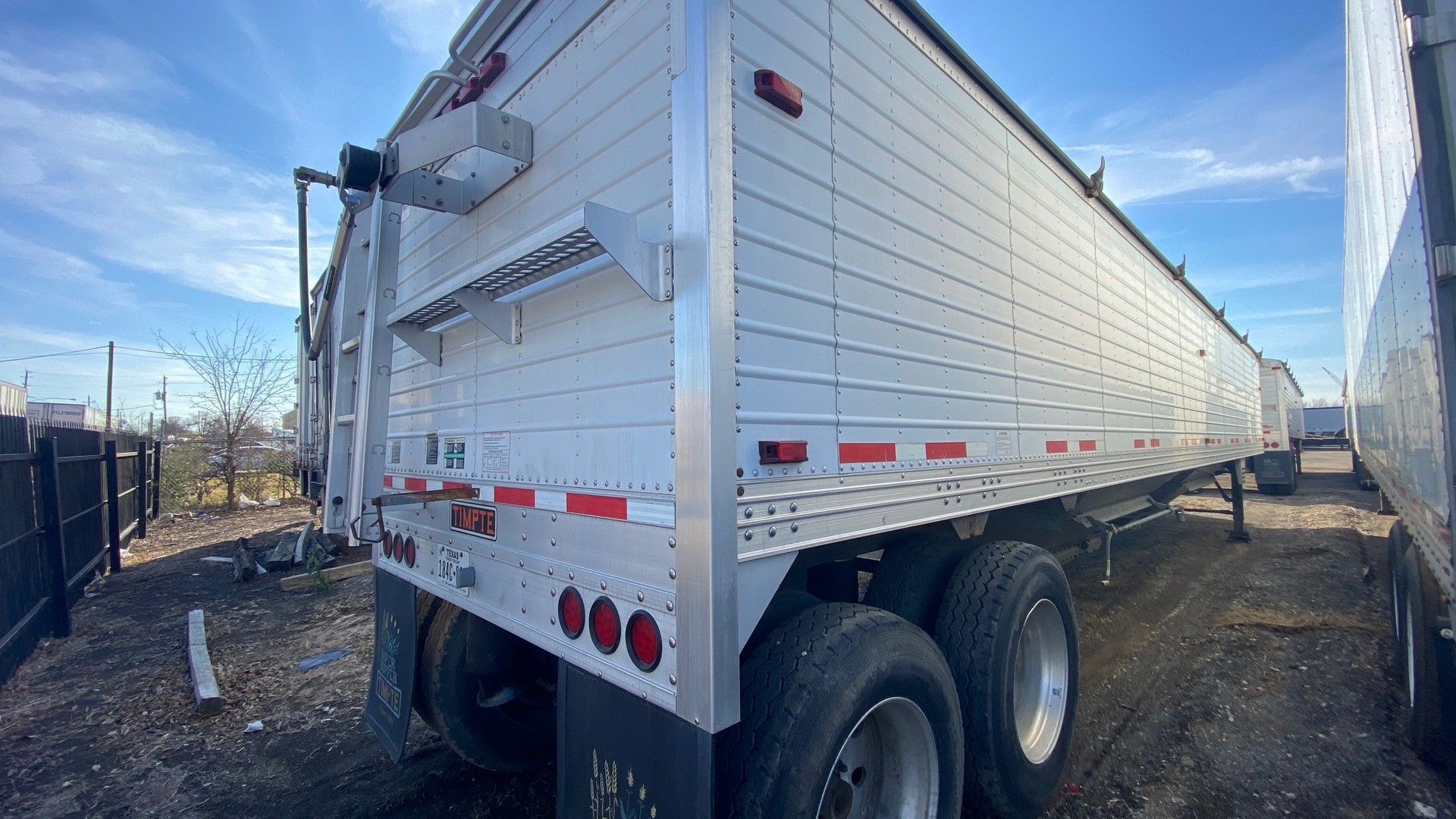Grain Trailers: What to Know Before You Buy

Grain trailers are a staple in agricultural transport, especially for farmers and operators moving large volumes of agricultural commodities or other crops between the field and the elevator. But not all grain trailers are the same, and buying one isn’t as straightforward as picking what’s available on the lot.
If you’re in the market—or just trying to understand what to look for—here are some key considerations to keep in mind.
Grain Trailers Are Usually Hopper Bottom Trailers
When people refer to “grain trailers,” they’re usually talking about hopper bottom trailers. These are trailers with sloped floors and bottom chutes (or “hoppers”) that allow grain to flow out by gravity. They’re used for hauling loose bulk commodities—mostly grains—and unloading into pits or augers.
Most setups have two hoppers, though some shorter or specialty trailers may have one.
Aluminum vs. Steel: There’s a Trade-Off
Grain trailers are made from either aluminum or steel, and each comes with pros and cons:
- Aluminum trailers are lighter, which gives you more payload and often better fuel efficiency. They also resist corrosion better over time.
- Steel trailers tend to cost less upfront and are incredibly durable—but they’re heavier and can rust, especially in wet or salty conditions.
If you’re running long distances or care about weight savings, aluminum usually makes more sense. For shorter hauls or rugged use, steel can still hold up well.
Know Your Weight Limits
Just because a trailer can carry 1,100 bushels of corn doesn’t mean you can legally haul that much on every road. Bridge laws and axle configurations affect how much weight you can put on the road.
Some states allow higher gross vehicle weights if you add a third axle. Others have stricter bridge formulas that limit how much you can legally carry depending on the spacing between axles.
Enclosed Design Helps Protect Grain from the Elements
Most grain trailers today—especially aluminum hopper trailers—are designed with sealed, enclosed tops and integrated discharge hoppers, making them more secure for long-distance hauls. This design helps prevent grain loss during transport and keeps the load dry and clean in bad weather.
Older models or certain regional setups might still use roll tarps, but enclosed trailers are now standard for efficiency, safety, and compliance with load protection regulations.
Used Trailers Are an Option—But Inspect Closely
If you’re considering a used grain trailer, a detailed inspection can save you a lot of future downtime. Key areas to check:
- Cracks in the frame or welds (especially near the hopper slopes).
- Worn or stiff trap doors.
- Rust or corrosion on the undercarriage.
- Tarp function and seals.
- Tire condition and brake wear.
Even trailers that look good on the surface can hide problems if they haven’t been maintained.
Length and Axles: Match to Your Route and Load Needs
Grain trailers come in different lengths (commonly 34′ to 50′) and axle setups (tandem or triple axle). The right configuration depends on:
- The weight you want to carry.
- Whether you’ll be driving mostly highway or rural routes.
- Legal length limits in your state.
Longer trailers carry more, but they can be harder to maneuver in tight yards or older grain facilities.
Loading and Unloading Considerations
Unloading is done via gravity through bottom trap doors. It sounds simple—but it needs to be smooth and consistent. Issues like warped doors or worn-out crank systems can slow you down or even clog your chute.
If you’re working in a fast-paced harvest season, reliability in unloading mechanisms is just as important as trailer capacity.
Grain trailers are purpose-built for efficient agricultural transport—but the right trailer depends on what you’re hauling, where you’re going, and how often you’re on the move. Taking the time to understand specs, weight laws, and equipment condition can help you avoid regrets down the road.
If you’re at the point of browsing options, here’s a good place to start: Great Western Trailer Grain Trailer Inventory. You can also speak with one of our Grain Trailer Specialists—contact Jerrod McGuire at (539) 242-6614 to learn more.
About Great Western Trailer
Since 1997, Great Western Trailer has been a trusted name in the semi-trailer industry. We proudly serve customers across 10 locations in the United States, offering Sales, Rentals, Leasing, Parts, Service, and Repairs.
Find us at: Phoenix, AZ – Fontana, CA – Dearborn, MI – Albuquerque, NM – Oklahoma City, OK – Tulsa, OK – Grants Pass, OR – Dallas, TX – Houston, TX – Salt Lake City, UT.

